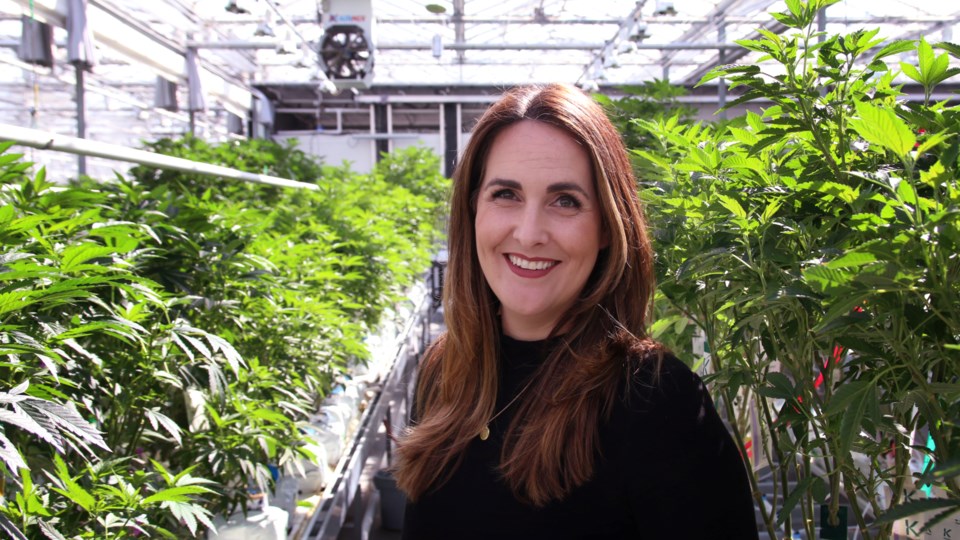B.C. cannabis growers say the recently tabled Cannabis Act final report was a step forward, but that more needs to be done to address the many challenges faced by the industry.
More than five years after cannabis was legalized in Canada, the government released its final report of the legislative review of the Cannabis Act in late March. The report included more than 50 recommendations for governments in areas including public health, Indigenous communities, the cannabis industry and medical access.
“I was quite pleased with some of the recommendations in the report. It certainly went above and beyond what they were mandated to be able to do,” said Deepak Anand, principal of ASDA Consultancy Services, a Vancouver-based consulting firm focusing on the cannabis industry.
He said some of the recommendations, if implemented by government, will have major positive impacts on Canadian and B.C. cannabis businesses. This includes allowing pharmacies to dispense medical cannabis, something that is not currently permitted. Instead, individuals need to order medical cannabis online from a licensed producer.
“One of the big changes that the panel has proposed is to treat this as any other pharmaceutical medicines and to be able to get it at a local pharmacy,” said Anand.
Anand said he was pleased to see recommendations about removing taxation for medical cannabis and considering a review of the excise-tax model, as it was based on a much higher average product price than what is seen today.
“I think that’s quite significant.… Currently, [most] cannabis cultivators in Canada are not profitable, and that’s because the government is making more money than the businesses themselves,” he said.
“There could have been higher recommendations on looking at adjusting tax. Over 50 per cent of bankruptcies in Canada in the last year have been cannabis companies. I don’t think the government and the review panel went far enough to be able to make the factor a little bit more robust and make sure that taxes are eliminated.”
Julia Cameron, a spokesperson for Delta-based cannabis grower Pure Sunfarms and a board member for the Cannabis Council of Canada, said the report reflects some changes the industry really needs now, particularly around reducing administrative complexity, on businesses’ ability to communicate information about their products and in enforcement of illicit markets.
“We’re really happy to see that there’s an increased ability in the design of packaging and what can be put on packaging to communicate information about the products to the consumer,” said Cameron.
“[It] will help consumers understand the [brand] differences, and particularly, the differences between our products and the products that are available in the illicit market.”
The report also recognized the challenges faced by small-scale cannabis producers, which make up around one-third of the cannabis producers in B.C. according to the Craft Cannabis Association of BC.
It recommends that provinces and territories consider allowing direct-to-consumer sales—including farmgate and mail orders—from smaller cultivators and processors to allow them to generate and keep more revenue than they are able to generate and keep by selling cannabis through distributors.
“We are forced to work with our centralized distribution systems in B.C. and Ontario, two of the biggest markets, and they’re geared towards large-scale licensed producers, so there have been many challenges for the small-scale operators,” said Sarah Campbell, director of Craft Cannabis Association of BC, which represents small-scale independent producers in the province.
“We would absolutely welcome any opportunity for us to keep a little bit of money in our pockets and just to stay afloat because there are many businesses that are shuttering their doors.”
However, some issues that the B.C. cannabis industry has long been advocating for are not included in the report, including increasing the permitted tetrahydrocannabinol (THC) level in cannabis, according to Anand. THC is the compound responsible for the intoxication effects experienced when consuming marijuana.
Companies can legally include up to a maximum of 10 milligrams of THC in a packaged product, whereas in the illicit market, a product may contain up to 100 milligrams.
Meanwhile, Kirk Tousaw, CEO of Cobble Hill, B.C.-based Great Gardener Farms, said he was disappointed that there weren’t more concrete proposals for action on reducing some of the paperwork burdens felt in particular by micro-cultivators like Great Gardener Farms.
“For the amount of data that we are required to track as small producers, it’s extraordinary. There’s a disproportionate impact the paperwork burden has on small businesses, as big companies can hire a dedicated compliance officer so they can set it and forget about it,” said Tousaw.
“We are currently operating with the two founders as unpaid volunteers. When I have to spend three, four hours a day on what I consider to be mostly useless paperwork, it’s a challenge.”





